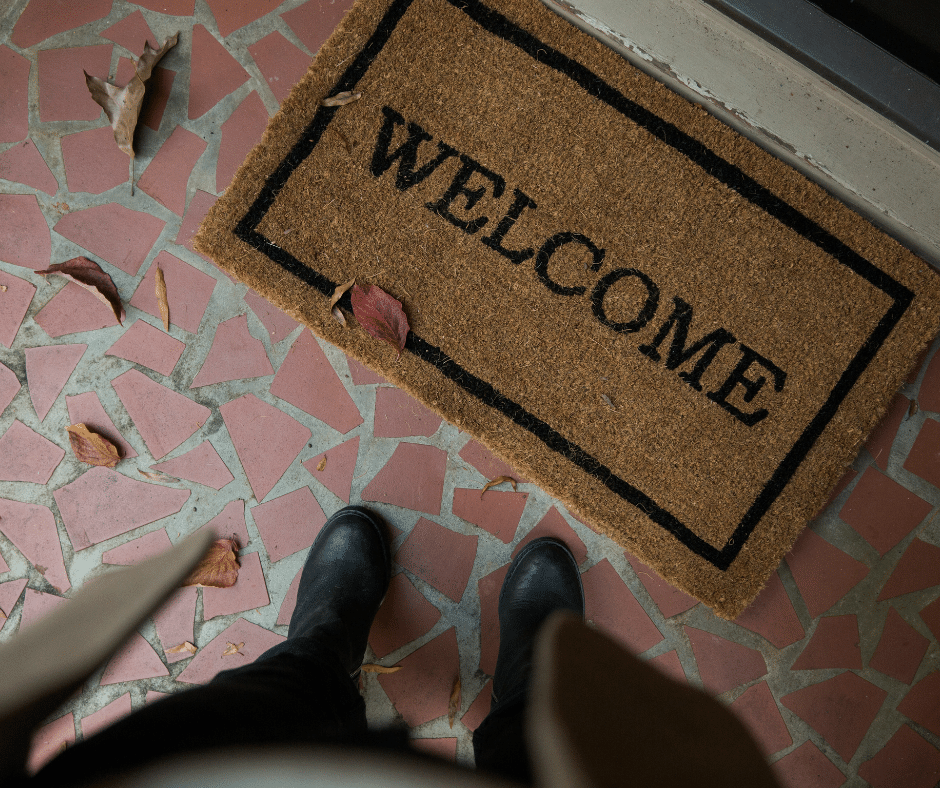Moving out for the first time? Your guide to everything you need to know about becoming a first-time renter.
Whether you’re moving into a shared place with strangers or friends or about to live it up all by yourself, there are a few essential things you need to know when moving out for the first time.
If you’re thinking about renting a place and you’ve not started looking yet, read from here. If you’ve got a place already and are moving in soon, scroll down to find out what to do when you move in.

So, let’s talk money. What’s it going to cost me to move out?
Let’s start with the basics; rent. First things first, you need to start looking to see how much rent you’re likely to pay each month and what you can afford. When looking for new properties it’s a good idea to check reviews on potential landlords, you can view our review map here. You will need to gather at least one month's rent in advanced, plus rent for another month as a deposit before you move in. So, the sooner you start saving, the quicker you can move.
What about bills?
Those pesky little bills, okay, let’s talk about them. When looking at whether you can afford to rent a property you need to take into account how much money to allocate for bills. As a minimum you will usually have to pay for; council tax, water, gas, electricity, TV license. However, most people also have internet, tv subscription services such as Netflix, contents insurance (this is optional but highly recommended, if your property is part or fully furnished your landlord is responsible for insuring the goods provided). Plus, on top of all this you have general expenses such as food, petrol, etc. So, it’s well worth looking at your current monthly outgoings and factoring in any extras as well as getting rid of any payments you don’t really need.
It is worth noting at this point that as of 2019, lettings agents are no longer legally allowed to charge most fees. It is illegal for them to charge fees for things like references, administration and credit and immigration checks. So, that’s one less thing to worry about.
So, I’ll need credit checks then?
Chances are, yes, your landlord or letting agents will want to run a credit check on you. They do this to make sure you’re likely to pay your rent. You will most likely have to dig out a ton of paperwork such as photo ID (driving license or passport), bank statements, payslips, proof of any benefits you receive and your contract of employment.
The landlord or lettings agent might also want a reference from your previous landlord to ensure you’re a good tenant. If you explain this is your first time moving out and ask if you can give a reference from your parents, guardian or employer instead, they should accept this.
Right, what do I do with this tenancy agreement then?
Great! You’ve got a tenancy agreement; this means you’re so close to moving out you can almost taste it. Now comes the boring but really important bit, read that document thoroughly! Keep your eyes peeled for any clauses, check how much notice you need to give to move out and look for when and by how much they might increase the rent. If you sign a contract for a certain period of time (usually 6 or 12 months) your landlord cannot just increase the rent whenever they want during that time.
If you have noticed anything in the property that needs fixing before you move in, ask the agent or the landlord to get it sorted before your move in date. You also need to ask for the contact details of either the landlord, or the person responsible for repairs at the letting agency in case anything goes wrong afterwards.
That deposit is a lot of money, where does it go?
It is likely you will have signed one of the most common types of tenancy agreements known as an ‘assured shorthold tenancy’, this means your landlord can’t just pocket your deposit. If you are renting in England or Wales, the landlord must secure your deposit in a tenancy deposit protection scheme (TDP). They must also tell you within 30 days of paying your deposit, which TDP scheme they are using to hold your deposit.
Great! I’ve got the keys, so what’s next?
Congratulations and welcome to your new home! There are a few things you should now do to get everything in place and organised for the start of this new chapter. We’ll break these down into the first day and first few weeks to make it easy to follow.
What to do on the first day you move in...
Take the meter readings
You want to make sure you’re being charged correctly for your energy from the day you move in. So, note down the figures and take a picture of the readings then give them to the current supplier as soon as possible.
Test smoke and carbon monoxide alarms
Your landlord should have done this already (and most alarms will be hard wired) but it’s always a good idea to check everything is working fine anyway.
Inspect the property
You will have been given an inventory report from the landlord or agent (read more about inventories here). You should walk around the property with that report in hand and note down anything that has been missed. Raise these issues with your landlord or agent immediately.
Take photographs
During your walk through, take pictures of any issues you have picked up on and include them when contacting the landlord or agent.
It is also a good idea to take pictures of the rooms in general, especially if you are allowed to decorate. This way you have images to look back on when you’re moving out and you need to put the property back to how it was when you moved in.

What to do on the first few weeks after you move in...
Update your driving license and car insurance
If you’re a driver, or even if you just use your license for ID, you’ll want to update your address on it as soon as possible. You can do this with the DVLA and within a few weeks they should send you an updated license in the post.
Changing address may impact how much you pay for car insurance and you need your insurers to know where you keep your car in your new place if anything goes wrong. So, you need to contact your car insurance provider to update your details. They might even give you a slight refund if your premium is cheaper in your new area.
Change your mailing address or set up a redirect
If you’re moving from your parents' house, this may not be a huge issue for you, however, it is good practise for when you move again. You can manually update your address with every company you receive post from or you can pay to have your post redirected with the Royal Mail.
It is also important to update;
- Your employer
- Your school or university
- HMRC
- Bank, credit cards or loan companies
Buy a TV license
You need a TV license if you watch any BBC channel or anything on BBC iPlayer. If that is the case, you will need to get a TV license as soon as possible or else face a pretty hefty fine. You can purchase your TV license on the TV license website and either pay in full or by direct debit.
Update the electoral register
When you move into a new place, you have to update the electoral register in order to be able to vote, plus it’s important for your credit score. So, make sure it’s done in the first few weeks of moving. Use the GOV.UK website to update your electoral roll details.
Arrange home contents insurance
It’s super quick and easy to get your home contents insured so you really might want to consider it. The insurance covers your possessions in case of things like robbery. As you are renting your property, you don’t have to worry about buildings insurance as this is the Landlords responsibility.
Register with a new dentist & doctor
You may or may not have to do this depending on how far you have moved. Each dentist and doctors have its own catchments area, so if you’ve moved out of the catchment, you need to register to one within the area you now live. You can register with a new GP surgery and find a new dentist on the NHS website.
Register with your local council
Your council should eventually contact you to arrange your council tax but it makes sense for you to contact them to arrange it sooner. Whilst in contact with the council it’s a good idea to find out about things like bin collection days and any recycling initiatives.
If you are moving into somewhere alone, you are also entitled to a single person's discount on your council tax so be sure to ask about any discounts you might be entitled to.
That’s pretty much everything
You’ve got it all done you superstar! Now you’re free to enjoy your new place knowing everything is organised. There is one more thing you can do, review your landlord today and become a part of the rental revolution, we’re all about giving tenants a voice and we can’t wait to hear yours.